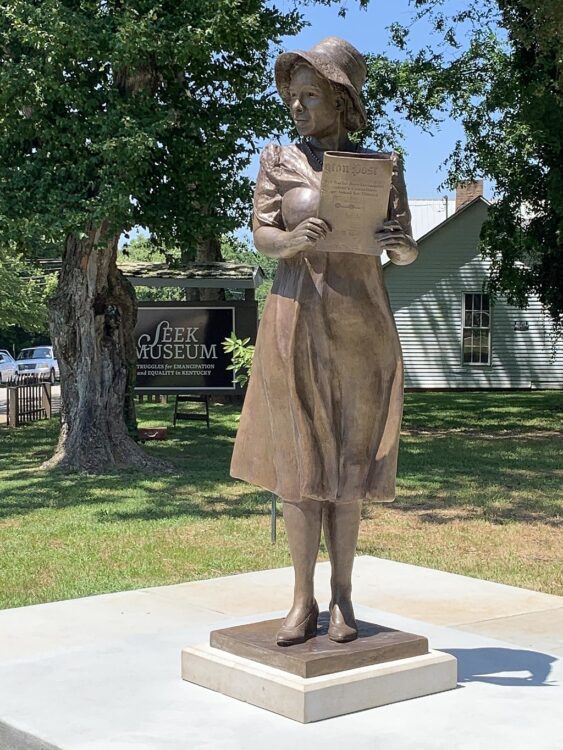The Women Behind the Black Press
Share
Explore Our Galleries
Breaking News!
Today's news and culture by Black and other reporters in the Black and mainstream media.
Ways to Support ABHM?
By Nadira Jameson, Word in Black
Ida B. Wells wasn’t the only Black woman to make waves in journalism.

In the past few years, we’ve seen Ida B. Wells — one of the most prominent journalists, anti-lynching activists, and women’s rights activists in history — finally get the recognition she deserves. The Ida B. Wells Society was launched in 2016. In 2018, the New York Times belatedly ran an obituary about her. And in 2019, after a campaign by Wells’ great-grandaughter Michelle Duster, Chicago finally named a street after Wells.
But have you heard of Mary Shadd Carey, the first Black woman to become a publisher in North America when she created The Provincial Freedman in 1850? Or Alice Allison Dunnigan, who in 1948 became the first Black female correspondent to receive White House credentials?
There is a long history of Black women who have not only contributed to but been leaders of the Black press. That’s why Ava Thompson Greenwell, professor at the Medill School of Journalism, Media, Integrated Marketing Communications at Northwestern University, says it’s time we give them their flowers.
“It’s important to situate them in the history and the importance they played at their Black press. These were owners, not just managers, but owners and publishers of these newspapers,” she explains.
Black women make up less than 5% of print and online newsrooms today. Greenwell believes teaching about the legacy of Black women publishers and increasing the visibility of Black women in the field is crucial if we want the next generation of Black girls to be inspired to join the profession.
“We know that patriarchy also runs deep within the Black community, and we have to uplift these Black women who are doing these things despite the sexism,” she says.
Discover more about these unsung Black women.
Our online exhibits focus on several unknown Black Americans.
Don’t forget to check out our breaking news page.









Comments Are Welcome
Note: We moderate submissions in order to create a space for meaningful dialogue, a space where museum visitors – adults and youth –– can exchange informed, thoughtful, and relevant comments that add value to our exhibits.
Racial slurs, personal attacks, obscenity, profanity, and SHOUTING do not meet the above standard. Such comments are posted in the exhibit Hateful Speech. Commercial promotions, impersonations, and incoherent comments likewise fail to meet our goals, so will not be posted. Submissions longer than 120 words will be shortened.
See our full Comments Policy here.